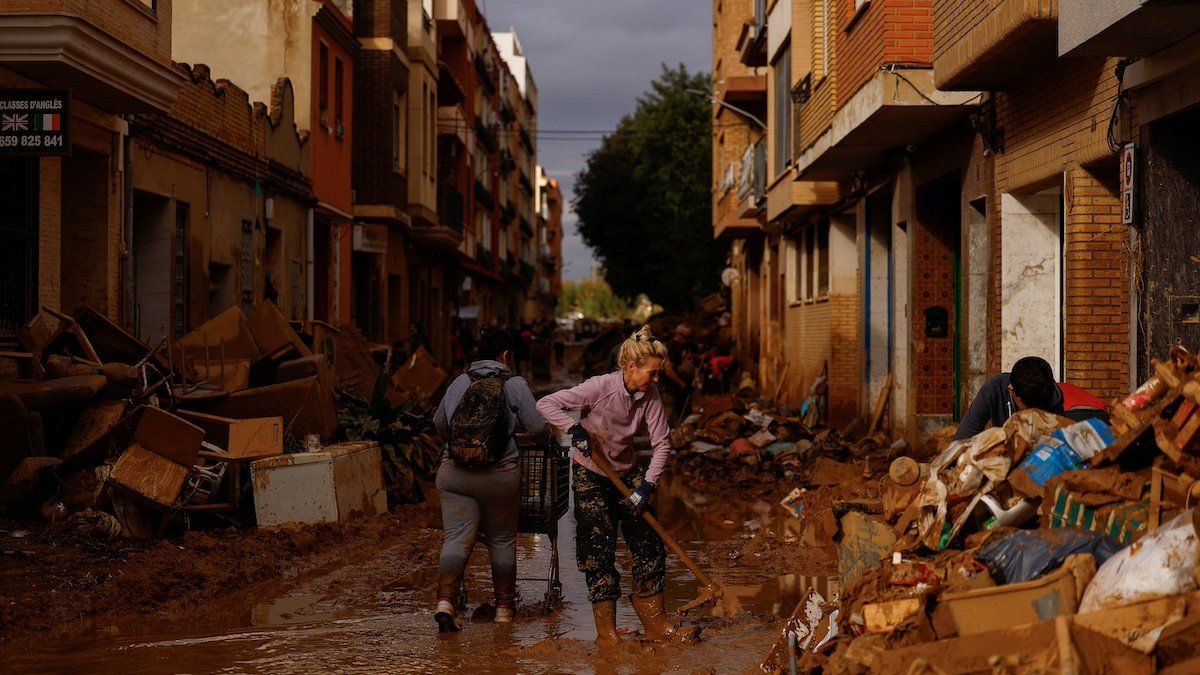Hard Numbers: Spaniards furious over floods, Muscovites steal pricy butter, Argentina cuts interest rates, Marriage rate drops in China, Japanese cyclists face fines, Incumbent wins in Moldova
210: Spanish Prime Minister Pedro Sánchez and King Felipe VIhad to cut short visits to flood-ravaged Valencia on Sunday after furious crowds “heckled and attacked” Sanchez and pelted Felipe with mud. Many locals feel authorities failed to heed warnings of torrential rains and act before floods tore out bridges and sent walls of water crashing through hillside communities, killing over 210 people.
34: Butter prices in Moscow have risen by 34% since the start of the year to 239.96 roubles (US$2.45), according to receipts reviewed by Reuters, as defense spending on Russia’s war with Ukraine drives up costs (official figures show a more modest but still painful 25.7% rise). Shoplifting has also soared, with some stores now placing the staple food in anti-theft containers. Talk about guns vs. butter!
35: Argentina’s central bank on Friday lowered its benchmark interest rate to 35% from 40%, its first cut in nearly six months as monthly inflation declined to 3.5% in September from 25.5% last December. While good news for consumers, economists say the move makes it harder for President Javier Milei to lift currency controls and won’t help his government negotiate a new deal with the IMF.
943,000: Marriage registrations in China dropped by nearly a million in the first nine months of 2024 compared to the same period in 2023, totaling 4.747 million couples. Economic uncertainty and high prices are prompting many young Chinese not to tie the knot, undermining Beijing’s efforts to boost a shrinking population.
6: Cell phones, sake, and cycling don’t mix! Cyclists who text and ride in Japan could face six months in jail or a fine of 100,000 yen (US$655) under a new law, and drinking and riding could net a term of up to three years or a penalty of 500,000 yen (US$3,278).54.35: Pro-EU incumbent Maia Sandu won reelection in Moldova on Sunday with 54.35% of the vote, a resounding victory that gives Sandu a mandate in her pursuit of accession to the European Union. Russia attempted to sway the election by backing Sandu’s anti-EU opponent, but Moldovans in the diaspora seem to have played a key role in ensuring Sandu stayed in power.
